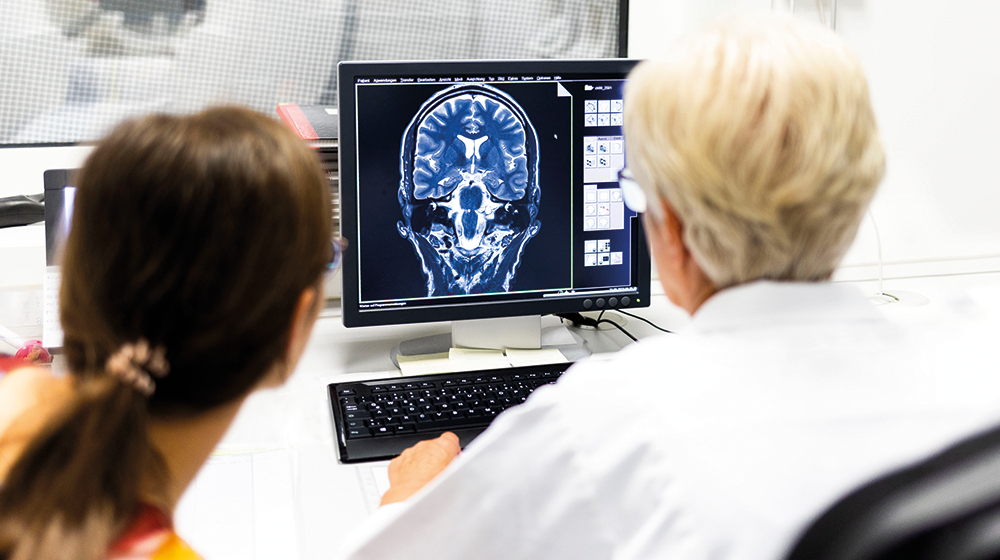
What was it again that your neighbor told you when you were in the supermarket? Which is the shortest way to the cinema? And where exactly did your keys end up as you walked through your house? Which of us isn’t familiar with taxing questions like these and with digging around in our memory to answer them? More often than generally realized, a lack of attention, holes in our memory and uncertainty about our spatial orientation crop up as a result of certain functional disorders in the brain. Researchers from Otto von Guericke University Magdeburg are looking to explore this with a number of scientific research institutions together with Martin Luther University Halle-Wittenberg in a cluster of excellence - however initially they will exclude such well-known diseases as dementia.
Scientists speak of a “pandemic of cognitive disorders”. In the recently submitted research application “Cognitive Vitality. A healthy mind in every body” they take into account the fact that many different causes can impede the absorption and retrieval of information in the brain. Professor Emrah Düzel, Director of the Institute of Cognitive Neurology and Dementia Research at the University of Magdeburg and spokesperson for the cluster project, cites, on the one hand, medical factors such as kidney or liver disease, diabetes, high blood pressure and gastrointestinal diseases. On the other hand, he mentions treatment-related side-effects such as chemotherapy for cancer or operations under general anesthetic at an advanced age as factors that can have an impact on brain activity.
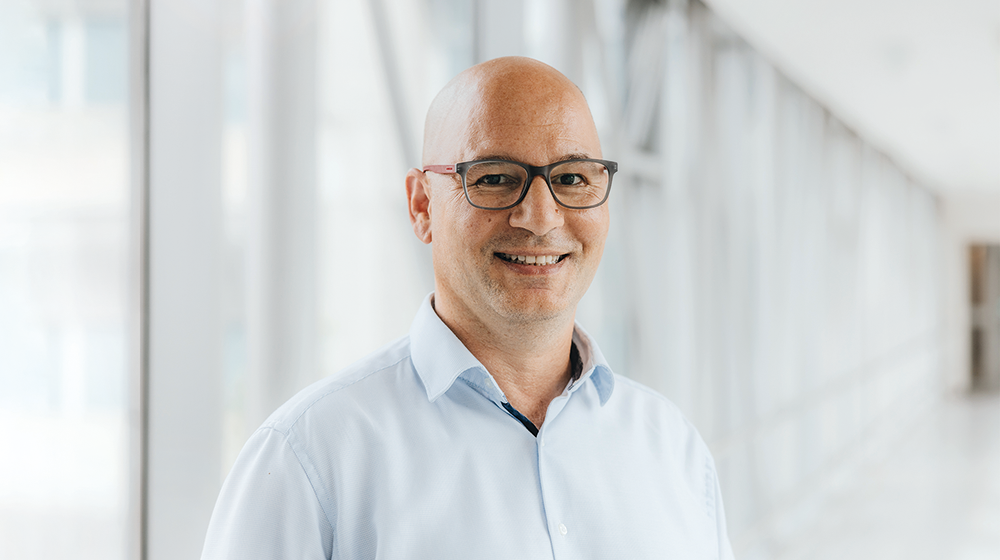 Prof. Emrah Duezel (Photo: Hannah Theile / Uni Magdeburg)
Prof. Emrah Duezel (Photo: Hannah Theile / Uni Magdeburg)
If the application is approved, from 2026 researchers from a range of medical and non-medical disciplines will seek to get to the bottom of the mechanisms of cognitive disorders as well as identifying prevention and treatment options in four interdisciplinary workshops modeled on the “Bauhaus”. The focus will be on cognitive vitality. “By this, we mean making the most of one’s own cognitive potential at all times and despite physical illness,” says Emrah Düzel. “It is about being independent in everyday life and achieving one’s wishes in life.”
The term “fatigue” also plays an important role in the cluster, that is the exhaustion of nerve functions and consequently of the ability to think and one’s level of motivation. In the “Recovery Promotion” workshop (brain recovery), Professor Aiden Haghikia plans to investigate as broad as possible a spectrum of manifestations, since, for example, fatigue is not always the result of chronic liver disease or long covid, but instead could be related to prolonged monotonous work. The clinical neurologist and neuroimmunologist aims to analyze the commonalities and differences between these diseases “so that we might, irrespective of the cause, ultimately be able to do something about the impairment of the neuronal circuits to improve an individual’s quality of life.”
Researching these circuits more closely is the task of the “Resource Enhancement” (enhancing brain performance) workshop. In this workshop, Professor Stefan Remy hopes to conduct basic research to gain a better understanding of how “the connections from a few nerve cells up to whole networks in the brain work and how they can be used.” In his work, the director of the Leibniz Institute for Neurobiology transfers knowledge gained from animal experimentation on mice and primates to human beings and tests new methods of brain stimulation in all three groups. “We are following the hypothesis that certain regions of the brain that are involved in learning and memory can be stimulated with harmless ultrasound.” The assumption is that slight temperature changes, for example in the cortex, that is the outer layer of the cerebrum, of around half a degree, change the activity of the neurons and thus improve performance.
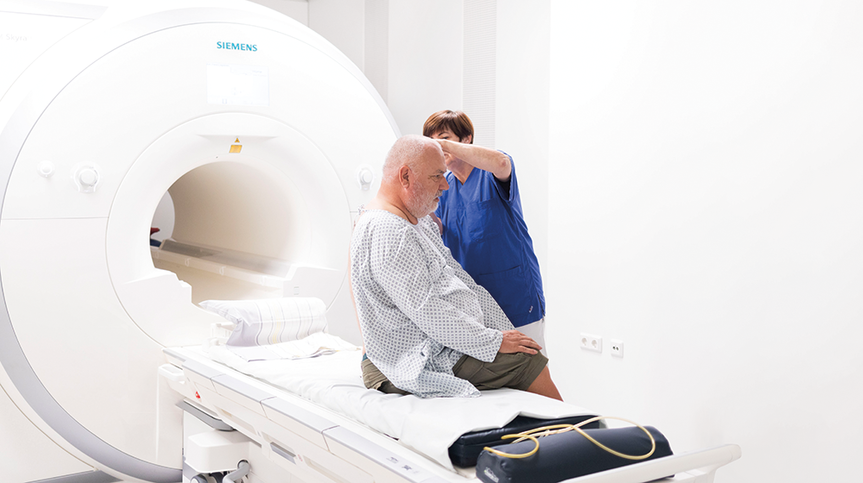 Structural and functional imaging are key components of the research project and the focus of our Magdeburg site. With the help of test subjects, answers can be found to questions about maintaining and protecting cognitive performance. (Photo: Sarah Rinka)
Structural and functional imaging are key components of the research project and the focus of our Magdeburg site. With the help of test subjects, answers can be found to questions about maintaining and protecting cognitive performance. (Photo: Sarah Rinka)
Initially, the cluster of excellence will collect large quantities of data from both patients and test subjects. What is known as the Mittel-Elbe cohort could then have access to medical information not only from people with different brain disorders, but also from healthy subjects of various ages. “A seemingly healthy 55-year-old might already have Alzheimer’s-like protein deposits in the brain, which in turn - alongside other physical stress factors such as a hip transplant - may allow conclusions to be drawn about their possible vulnerability,” says Emrah Düzel.
The idea is that the large database will grow continuously through the cooperation of test subjects and patients, university medicine and licensed physicians as well as general practitioners Some special tests, for example with the world’s strongest high-resolution MRI machine (magnetic resonance imaging machine) in Magdeburg, with which certain risk factors in the brain can be identified, have to be undertaken in the university hospital. However, the patients remain integrated in general practice during the course of the research. “This has the advantage that they do not need to come here to the hospital every week,” explains Professor Düzel. “This means that we are able to reach significantly more people and can conduct our research as part of their everyday routine.”
Everyday means that the doctor treating the patient in their home area can use blood samples to assess what the consequences of an operation might be or whether a new medication has side-effects. Apart from this, the participants test themselves with the help of digital technologies, to see whether and how their brain functions change in everyday life. To do so, for several months they have a watch or a smartphone on which a kind of computer game is running. “They see images one after another in which similar objects and rooms are depicted and have to describe what has changed,” says the neurologist. “This data needs to be evaluated very quickly,” stresses Aiden Haghikia: “We want to be able to intervene at an early stage to make use of the treatments, such as medication, neurostimulation or diet, that are already available to us.” In the opinion of the researchers, one of the greatest challenges will be to bring the many scientific disciplines together under one umbrella: neurobiologists and neuroscientists will need to work not only with clinical disciplines such as orthopedics, internal medicine, anesthesiology and cardiology, but rather the expertise of mathematicians, computer scientists and computational intelligence specialists will also be needed.
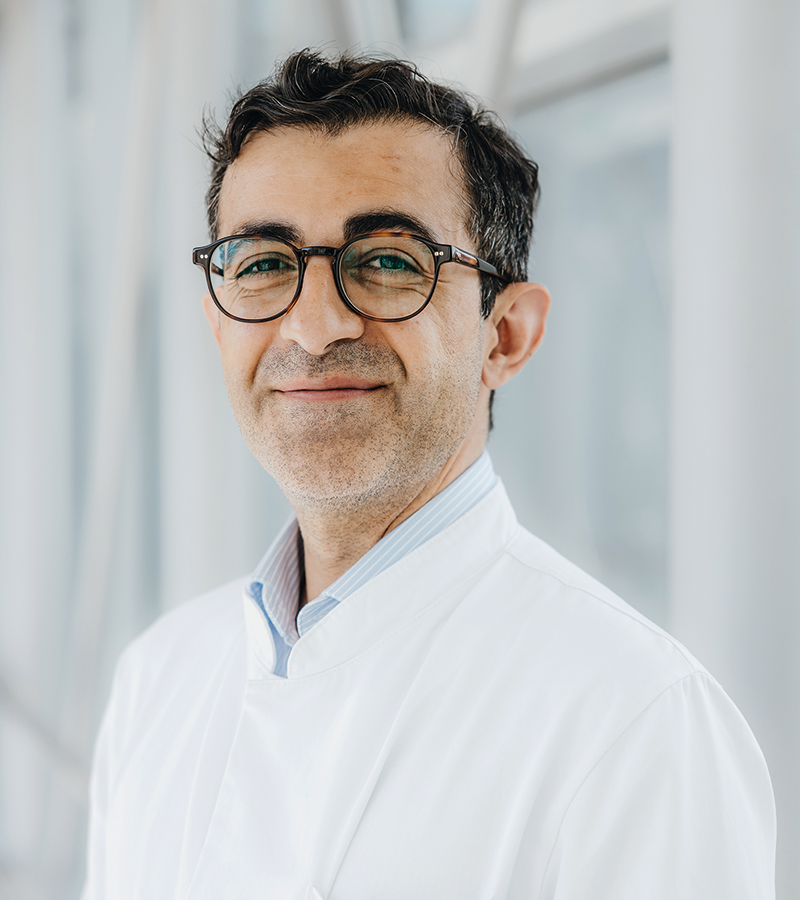
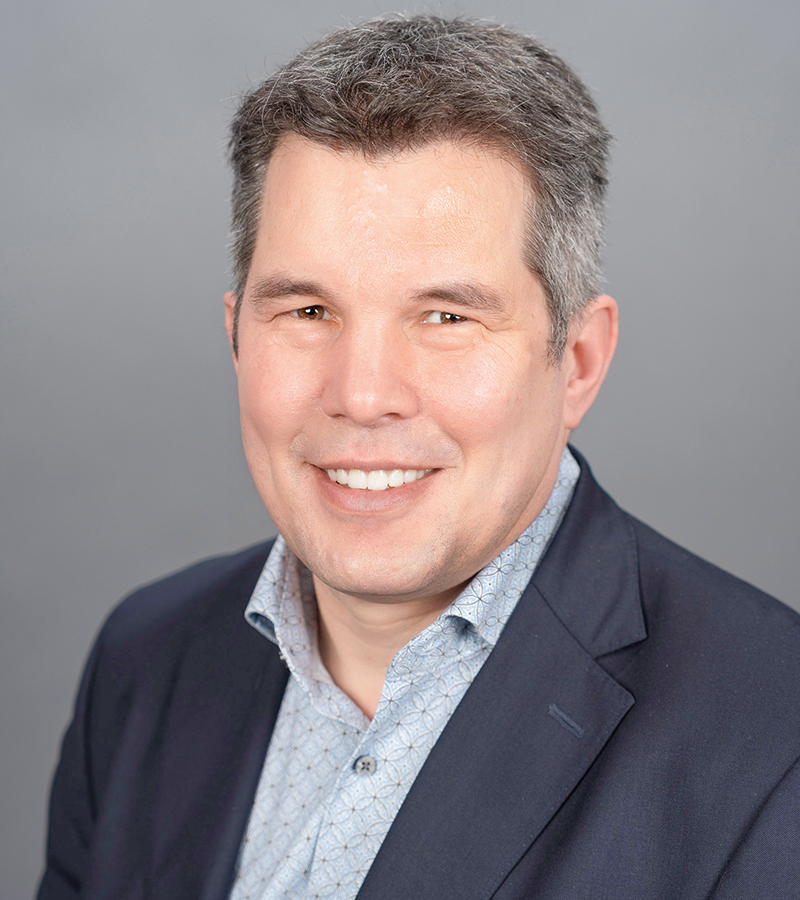
The researchers believe there are many ways in which the performance of the brain can be enhanced again. “It is not about saying to somebody, do as much sport and live as healthily as possible, and then you will stay cognitively healthy,” Emrah Düzel clarifies. All of this may seem self-evident, but it is not possible for everyone. “For this reason, it is important to take action with medication and other interventions such as brain stimulation - especially if the brain is particularly vulnerable due to physical limitations and risks.”
According to Düzel for him the possibility of “trying to maintain unimpaired cognitive performance over our lifetime,” is the key motivation behind his research. As an important center for imaging techniques, Magdeburg seems predestined for this type of work, and the way in which the brain functions has already been partially researched. “We assume that there are key processes in the brain that need to be trained. This training in turn has an impact on different cognitive processes.” Identifying these and training them individually, is the goal of the cluster.
As a neurobiologist, Stefan Remy is firmly convinced that there is a great deal of interest among the general public in this cognitive training. “At present, unfortunately, there are many computer games on the market, that play with the fear of impaired performance and promise to train the brain,” he warns. However, they have no neurobiological or medical foundation and will not have the desired effect.
The findings from the cluster of excellence should be fed as quickly as possible into patient care. To this end, the University of Magdeburg and the research institutes are planning a “Center for Cognitive Vitality” - with an outpatient clinic in which questions of cognitive performance can be taken into account during treatment. “Patients often report that their cognitive abilities fluctuate from day to day, which, of course, is also age-related,” says Remy. “We would like to make it possible for them to be more attentive and able to concentrate in their everyday lives and to be able to make better decisions - so that they have more good days than bad.”
